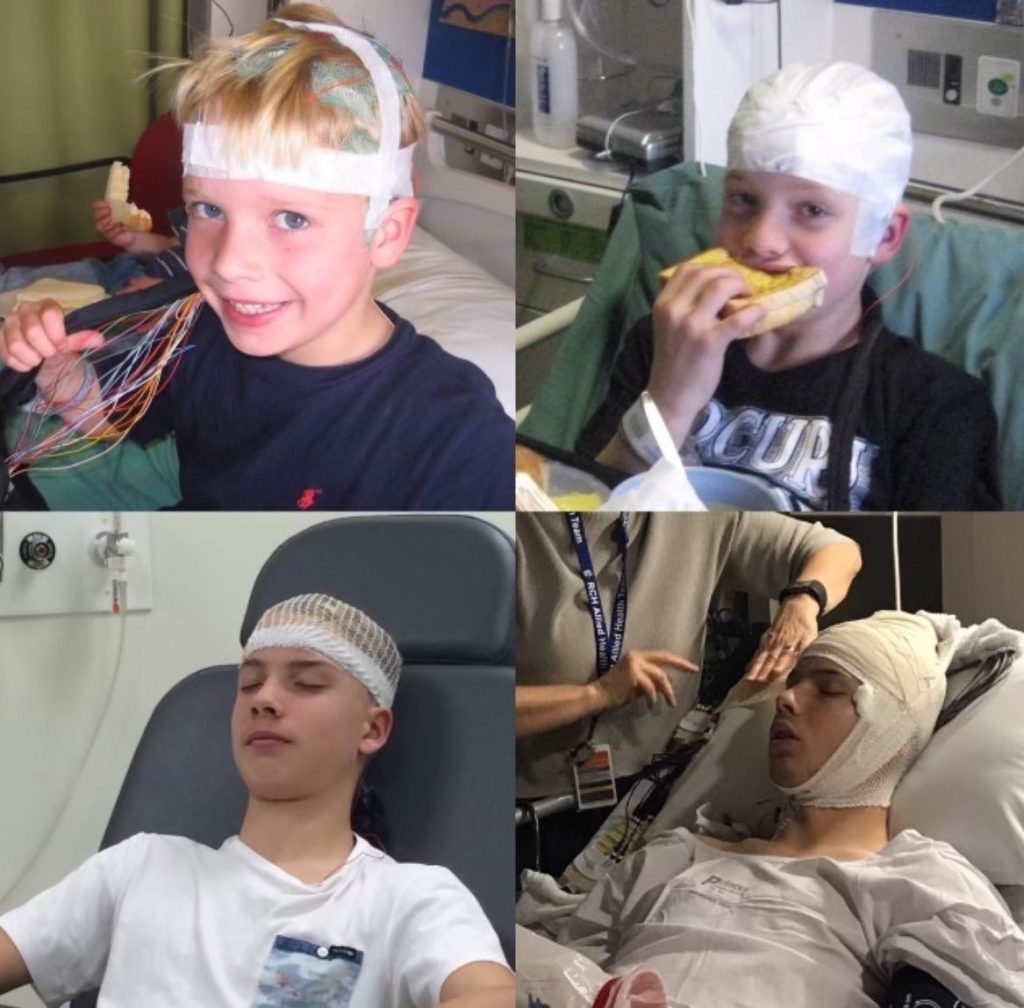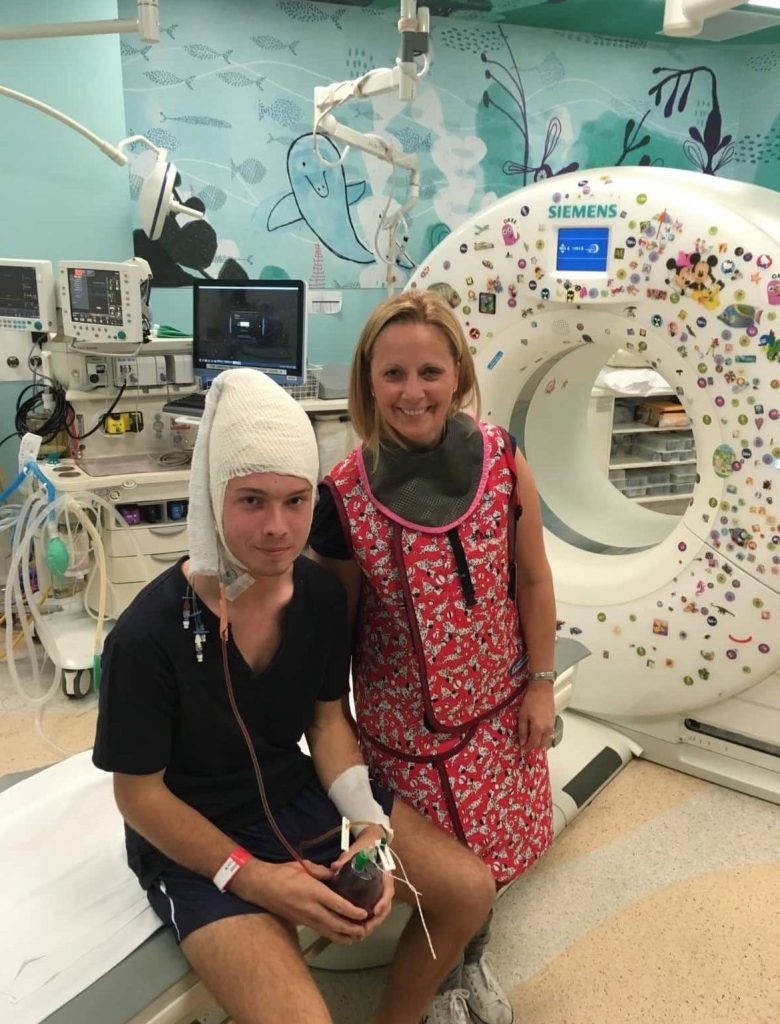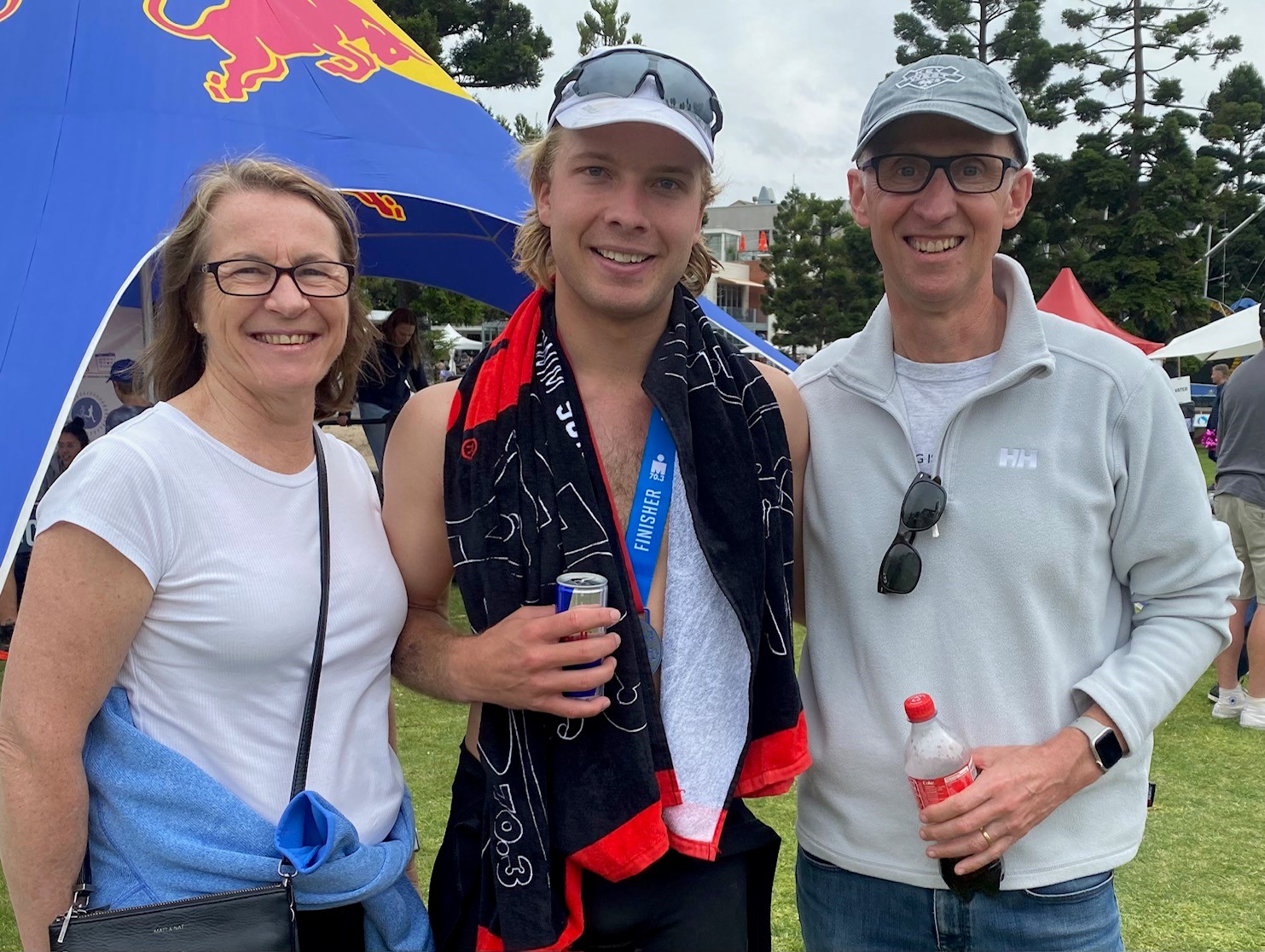Imagine swimming, riding and running over 110 kilometres, all in one day. That is exactly what Flynn, a former patient at The Royal Children’s Hospital (RCH), did in March this year. The 22 year old undertook a half Ironman, also known as an Ironman 70.3, to raise vital funds for a cause close to his heart – epilepsy.
Flynn was five years old when his parents, Kristen and Mathew, started to notice that, every few days, Flynn would randomly start laughing uncontrollably. Then, his right arm would jolt and lock. After a visit to the GP, Flynn was referred to the RCH, where he first met his specialist, paediatric neurologist Dr Michael Hayman, who undertook a number of tests and eventually diagnosed Flynn with epilepsy.
Thankfully for Flynn and his parents, after a few trials, they found a medication that worked and, for the most part, controlled his seizures, something Flynn is still incredibly grateful for.
“I still feel really lucky that we found a medication that worked for me because I know so many kids who don’t have the same luck. While I still had seizures every now and then, they weren’t developing into grand mal seizures, which are the really bad ones where you convulse and lose consciousness,” said Flynn.

Over the years, Flynn went through extensive testing to pinpoint the focal point in his brain where the seizures were originating
Flynn and his family worked with Dr Michael Hayman for around four years, before they were referred onto Simon Harvey, another paediatric neurologist at the RCH.
“My clinician thought that surgery might be an option to manage my epilepsy, so I got referred onto Simon. During the 10 years with Simon I went through extensive testing, but nothing could pinpoint the focal point in my brain as to where the seizures were originating,” said Flynn.
“I eventually got to a stage of my life where I was unable to do things that normal teenagers could do, like get my license and start driving, because of my epilepsy. So, we decided to start looking into surgical options to locate the focal point, the next step given the tests Simon was doing hadn’t been successful,” he added.
In 2017, when Flynn was in Year 11, he underwent two 10 hour brain surgeries to locate and remove the area of the brain that was causing his seizures, a surgery known as focal resection.
During the first surgery, neurosurgeon Wirginia Maixner took two pads filled with 86 EEG electrodes and placed them on the surface on Flynn’s brain. Following the surgery, Flynn was monitored in hospital for a week, where he underwent extensive speech and functional movement testing while his brain waves were monitored.

Flynn and his mum at the RCH
“It was really weird process. They’d tell me to put my tongue out, and then they would stimulate the electrode on the part of the brain to make me put my tongue back in. Eventually they stimulated the electrodes on the focal point. They knew it was the right spot because I felt like I was having a seizure, and the brainwaves were abnormal,” he said.
In the second surgery, Wirginia was able to go back into Flynn’s brain and remove the small amount of dysplasia, or problem brain, that was causing the seizures. The surgery was a success, and Flynn has been seizure free for over five years.
“I feel extremely lucky to be in the position that I am, and I am so grateful for the care that I received at the RCH. My clinicians, Michael, Simon and Wirginia, were so helpful and kind to me and my family. It showed me how much the staff care about their patients, and I wanted to do something to give back to that,” said Flynn.
It is this gratitude that motivated Flynn to create a fundraiser for the RCH. On March 26 2023, he completed a 1.9 kilometre swim, a 90.1 kilometre bike ride and a 21.1 kilometre run, while his family, friends and RCH clinicians Simon and Wirginia watched on.

Flynn with Wirginia and Simon after the Half Ironman
“For so long, epilepsy was such a major part of my life, and then having the surgery was such a big step for me. It kind of allowed me to see the world in a different way and made me realise that I was capable of doing things that I thought I couldn’t.”
“That is why I wanted to do the Ironman. I took something really challenging, and something I didn’t feel like I was capable of doing and did it,” he added.
Flynn also found inspiration in his dad, Mathew, who was part of the Boating for Brains fundraiser in 2018. Over the course of five days, Mathew and 21 other individuals paddled 576 kilometres along the Murray River in a dragon boat, raising $250,000 for the RCH and breaking a Guinness World Record.
“It was epic. I was completing Year 12 at the time, so I wasn’t able to join the crew. But it really inspired me to do my own thing to raise funds for the hospital,” Flynn said.
Flynn’s initial fundraising target was $5,000 which he managed to surpass, raising an impressive $6,200 for the RCH’s Neurology Department. But for Flynn, it was more than raising money. It was an opportunity to encourage other young people who may have overcome their own illness or setbacks.
“While it meant a lot to me to be able to give back to the RCH, I think I succeeded in showing people you can overcome anything, and anything is possible if you put your mind to it.”